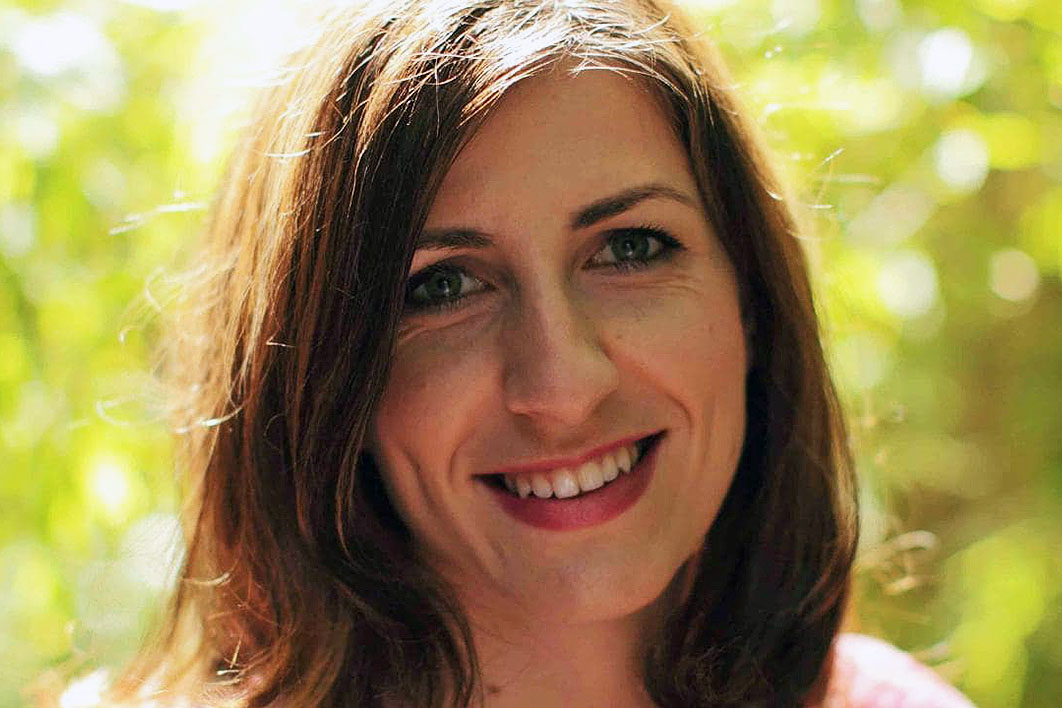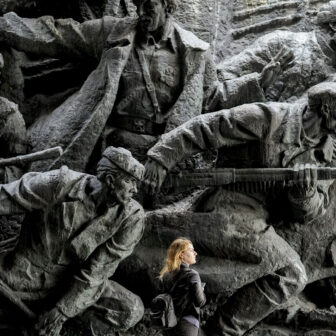Miss Ex-Yugoslavia
By Sofija Stefanovic | Viking | $34.99 | 288 pages
First and second generation migrants and refugees have been documenting their journeys and their impressions of Australia for decades, often self-publishing their stories in their first languages or in English. In the 1980s and 90s, a small number of them made it into bookshops, particularly after multiculturalism came along with its embrace of the “ethnic writer” as important evidence of the success of Australian diversity. They told a different, more complex story from the conventional narrative of Australian migration as a journey of successful assimilation. Yet they also retained an uneasy status — as “migrant” or “ethnic” literature — within the Australian literary canon, with connotations of being foreign and therefore second-rate.
Sofija Stefanovic’s account of growing up between Australia and Yugoslavia during the 1990s is one example of a memoir breaking these stereotypes. Her book is enjoying considerable success, and she writes with penetrating wit and a keen eye for observation about the less glamorous realities of migrating to Australia. Through Stefanovic, we also gain an insight into the “ex-Yugo” community, and in turn, their own often bitingly funny perceptions of Australians. It is not often that we are forced to take such a hard look at ourselves.
The title, Miss Ex-Yugoslavia, bears a triple meaning: by the end of that decade, Yugoslavia no longer existed; and Stefanovic, like many in the Yugoslavian diaspora, came to identify as an “ex-Yugo,” neither fully Australian nor fully Serbian. As her story so candidly reminds us, for many first-generation migrants and refugees, the process of leaving, and of finding, a home is never done. The third meaning is a more literal reference to the Miss Yugoslavia beauty contest that Stefanovic entered as a university student, which opens her memoir. (She won the Miss Personality prize, and it’s easy to see why.)
Stefanovic was the first-born child of educated, middle-class, articulate, argumentative parents who were passionate about the politics of their country at a time when it was virtually impossible not to be. Belgrade in the 1980s was uniquely liberal among the socialist European capitals, thanks to Marshal Tito’s deft diplomacy, which enabled Yugoslavia to remain outside the Iron Curtain. All-night taverns served plum brandy, young Russian visitors stocked up on David Bowie records, and Yugoslavs took holidays overseas and welcomed tourists to their beaches. It was, in Stefanovic’s words, “inexpensive, laid-back, built on hope.”
This was not to last. Her parents, both young professionals, were part of an intellectual scene opposed to the growing nationalist politics espoused by an ambitious Serbian politician called Slobodan Milošević. As first Kosovo, then Croatia, Bosnia and Slovenia began to churn with nationalist sentiment and threats of war, her parents’ circle of friends spent evenings smoking, drinking and arguing, her father invariably taking himself off to bed early with a book as the visitors stayed on with her energetic mother until the early hours.
By the time Stefanovic was four, her mother had finally given in to her husband’s wish to emigrate, on the condition that after two years, having secured Australian citizenship, they would come back. That way, the door to Australia would be open should they ever need it. They chose Australia — the “arsehole of the world,” as Stefanovic’s mother described it — simply because it was easier to get into than America or Canada, however surprising that might seem to those more used to the triumphalist narrative in which migrants beg to come here and we choose to accept or reject them.
Thanks to her father’s software engineering degree, Stefanovic’s family didn’t come as refugees but on professional visas. He went first to find a place to live, and Stefanovic, her two-month-old sister and her mother finally arrived on a wintry Melbourne day, the sun shining brightly out of the “vast blue dome” of an Australian sky (in contrast to Belgrade’s unremittingly grey one). And so Stefanovic’s childhood in Australia began, with all the challenges of making friends and learning English. Language is an important part of the journey of belonging for Stefanovic and her parents, and this memoir makes clear that mastering the rules and quirks of English is a daily struggle, and choosing to reject them is often a momentary assertion of free will.
Stefanovic’s account of this period is by turns hilarious and excruciating. We see a child who craves attention, sometimes at great cost, and whose taste for the dramatic is matched only by that of her spirited mother. Forced to mix with women of the diaspora with whom she has nothing in common except language, this once-witty, independent, respected psychologist doesn’t endure quietly the humiliation of being reduced to the status of an inarticulate, isolated, funny-sounding and powerless housewife, often taking it out on her husband in outbursts of angry despair.
Stefanovic draws a picture of a conservative and stultifying ex-Yugoslav community, the opposite of their Belgrade friends. “When they tried to initiate political conversations at the welcome party,” she writes, “my parents found that Australian Yugoslavians preferred to speak about buying houses, the price of cotton clothing, and gossip within the diaspora.”
For me, the most vivid parts of Miss Ex-Yugoslavia are Stefanovic’s descriptions of the world in which she finds herself, both as an adored member of her family, with its cast of larger-than-life grandparents, aunts, uncles and cousins, and as a friendless outsider, desperate to fit in. I found myself laughing and crying at the same time at some of her descriptions — though more often laughing. I don’t remember the last time a book has made me laugh out loud like this one did.
Then, when Stefanovic finally conquers the language and the name-calling hostility of her classmates, her parents announce that they are returning to Yugoslavia, honouring the promise her father made to her mother. The war that broke up Yugoslavia was not yet a reality, at least not in Belgrade, and so they pack their things and return — overturning another Australian trope, that migration is a one-way street.
And so the process of adjustment starts again, and again it’s relayed with wit and honesty. Stefanovic’s parents join the opposition movement against Milošević, and as an eight-year-old she accompanies her father on nightly protests in Belgrade. By the end of 1991, Yugoslavia was officially at war. They pack their bags and return to the safety of Australia, not to Melbourne this time but to Whyalla, South Australia, “the arsehole’s arsehole,” where her father has a work contract for nine months.
What is so refreshing about this book is that Stefanovic is able to place her personal memoir of growing up against the backdrop of the break-up of her native Yugoslavia. She studied documentary film at university, and its influence is clear in the way she accords a central role to the wider world of politics and history.
As an adolescent, adrift and searching for some kind of purpose in the wake of her father’s tragic illness and death from cancer, she describes her fascination for Otpor, a student protest movement in Belgrade. Using a mixture of creativity and nonviolence, Otpor united the exhausted opposition movement in a concerted push to bring down Milošević and end the war. The movement rejuvenated Stefanovic’s passion for her Yugoslavian roots, and she became part of a new “ex-Yugo” scene of recent young refugees, attending protests at the American embassy against the NATO bombings, listening to Yugo rock songs, talking loudly in Serbian and giving the thumbs-up to Australian passers-by.
And yet, as she describes it, her return to Belgrade in 2000, after turning eighteen and finishing high school, is a mixed “homecoming.” Her beloved cousin has committed suicide, her mother’s best friend’s son has died of a drug overdose, and there is little to be nostalgic about. “The Belgrade I stood in now seemed like a lie,” she writes. What she had missed all along was the Belgrade of early childhood, a place of memories “before anything bad ever happened.” On her way back to Melbourne once more, after enduring an operation for a condition that also, she later discovers, didn’t exist, she feels as if she is finally coming home.
“The Yugos aren’t my people,” she realises later, standing in Readings bookshop in Melbourne, at the same time remembering that she “never felt like an Aussie either.” Perhaps, she wonders, she can get away with calling herself “a citizen of the world,” should anyone ever ask. ●




